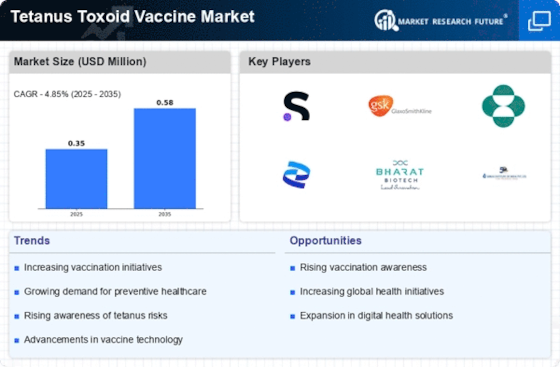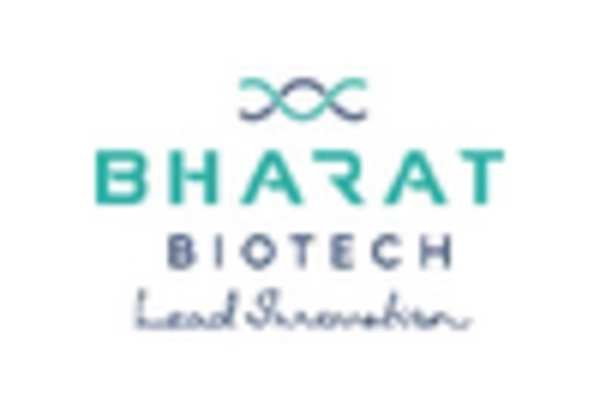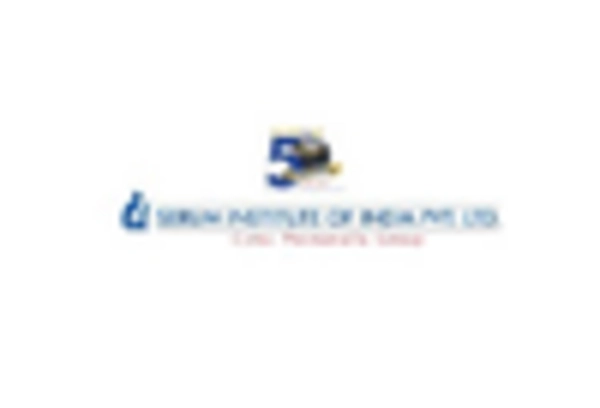Market Share
Tetanus Toxoid Vaccine Market Share Analysis
In terms of the dynamic context in which Tetanus Toxoid Vaccine market operates, different companies implement diverse ways of positioning their market shares for competition. One popular tactic is differentiation in which firms underscore specialty aspects or benefits about their vaccines to make them stand out in the market. These may entail factors such as better performance, fewer side effects or novel methods of delivery. By doing this, the firms are able to attract a market segment that appreciates certain qualities hence ensuring a good portion of the market.
On the other hand, there are companies that use cost leadership strategy where they ensure their Tetanus Toxoid Vaccines are produced much efficiently and at a lower price compared to those made by other producers. They fix competitive fees thus attracting many customers who go for affordable goods or services while increasing its share on the market. This strategy embraces adjusting production processes, sourcing strategies and economies of scale.
Strategic alliances and partnerships are also employed as means of enhancing one's market positioning through share gains. This will include working with health care providers, governments or international organizations in order to enhance one’s reach and reputation. When linked with main shareholders like this, enterprises may be presented with new markets and thus benefit from shared resources and already established distribution channels. In addition, these partnerships help in strengthening the company’s presence on the market and also contribute towards positive perception regarding its commitment towards public health.
Market share positioning within Tetanus Toxoid Vaccine sector highly depends on innovation. Companies which have invested into researches aimed at making improvements for example in formulations or vaccine administration techniques become positioning themselves as being ahead of others within the industry (Gupta et al., 2015). Such innovations draw not only healthcare practitioners but also health conscious individuals looking for current developments in prevention medicine (World Health Organization [WHO], 2017). As a result, such proactive steps can lead to significant increase in a company’s share on the market.
Furthermore, another strategy employed by Tetanus Toxoid Vaccine manufacturers is geographic expansion. By entering new markets or expanding existing ones, companies can tap into a broader consumer base. This involves understanding and adaptation to regional preferences, regulatory requirements, and healthcare infrastructure. Therefore, effective geographic expansion requires strategic planning and targeted marketing aimed at communicating the value of TT vaccine in diverse markets.
Furthermore, an organization may choose a customer-oriented approach in order to protect as well as increase its market share. In this case, the firm must take a moment to understand the needs and preferences of stakeholders including health care professionals, governments among others. The company can then create products that are tailor-made for these specific customers hence building strong bonds with them thus creating brand loyalty which finally translates into higher percentage of market share.


















Leave a Comment